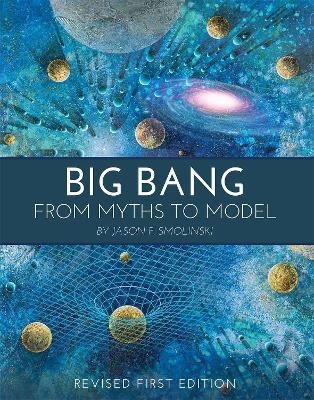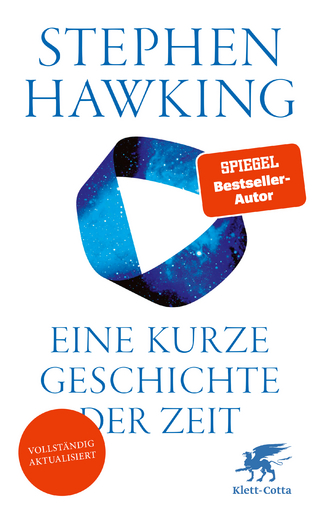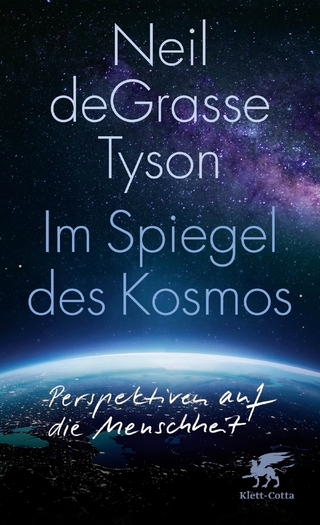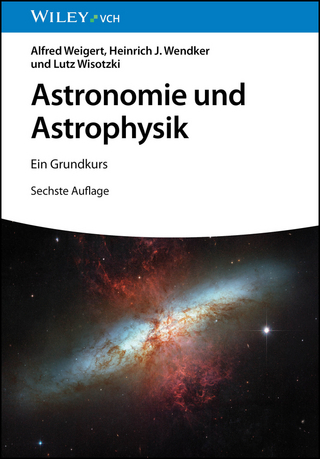
Big Bang
From Myths to Model
Seiten
2017
|
Revised First Edition
Cognella, Inc (Verlag)
978-1-5165-1181-5 (ISBN)
Cognella, Inc (Verlag)
978-1-5165-1181-5 (ISBN)
Offers a chronological, scientific treatment of the history of astronomy as a science. Beginning with ancient cultures and ending with the modern era, this book explores how humanity has studied the universe, what we claim to know about it, and why we claim to know it.
Big Bang: From Myths to Model is a chronological, scientific treatment of the history of astronomy as a science. Beginning with ancient cultures and ending with the modern era, this book explores how humanity has studied the universe, what we claim to know about it, and why we claim to know it.
Through ten chapters, the book traces astronomy from its roots in ancient ideas of cosmology and geocentrism, through the Renaissance, the Newtonian Revolution, and the dawn of modern physics. It introduces light and matter, how the stars are measured, the expanding universe, and the Big Bang Model. The final chapter examines modern cosmology and accelerating expansion, and questions the cause of the Big Bang.
Big Bang offers an intellectually honest assessment of the fluidity of science, and teaches readers that science is not simply about facts, but also the progression of ideas and the testing of hypotheses.
Filled with amazing imagery produced by modern astronomical instruments, Big Bang is designed for introductory college courses that explore the development of insight into the universe, particularly astronomy and physics courses for the nonscience major.
Big Bang: From Myths to Model is a chronological, scientific treatment of the history of astronomy as a science. Beginning with ancient cultures and ending with the modern era, this book explores how humanity has studied the universe, what we claim to know about it, and why we claim to know it.
Through ten chapters, the book traces astronomy from its roots in ancient ideas of cosmology and geocentrism, through the Renaissance, the Newtonian Revolution, and the dawn of modern physics. It introduces light and matter, how the stars are measured, the expanding universe, and the Big Bang Model. The final chapter examines modern cosmology and accelerating expansion, and questions the cause of the Big Bang.
Big Bang offers an intellectually honest assessment of the fluidity of science, and teaches readers that science is not simply about facts, but also the progression of ideas and the testing of hypotheses.
Filled with amazing imagery produced by modern astronomical instruments, Big Bang is designed for introductory college courses that explore the development of insight into the universe, particularly astronomy and physics courses for the nonscience major.
Jason P. Smolinski holds a Ph.D. in astronomy and astrophysics from Michigan State University. Dr. Smolinski is an assistant professor in the Department of Physics and Astronomy at Calvin College, in Grand Rapids, Michigan. Currently his research focuses on the chemical properties of globular clusters, and he has written on the subject with work appearing in Astronomy & Astrophysics and the Astronomical Journal.
| Erscheinungsdatum | 14.01.2017 |
|---|---|
| Verlagsort | San Diego |
| Sprache | englisch |
| Maße | 203 x 254 mm |
| Gewicht | 525 g |
| Themenwelt | Sachbuch/Ratgeber ► Natur / Technik ► Weltraum / Astronomie |
| Naturwissenschaften ► Physik / Astronomie ► Astronomie / Astrophysik | |
| ISBN-10 | 1-5165-1181-6 / 1516511816 |
| ISBN-13 | 978-1-5165-1181-5 / 9781516511815 |
| Zustand | Neuware |
| Haben Sie eine Frage zum Produkt? |
Mehr entdecken
aus dem Bereich
aus dem Bereich
die Suche nach der Urkraft des Universums
Buch | Hardcover (2023)
Klett-Cotta (Verlag)
25,00 €
Perspektiven auf die Menschheit
Buch | Hardcover (2024)
Klett-Cotta (Verlag)
25,00 €


